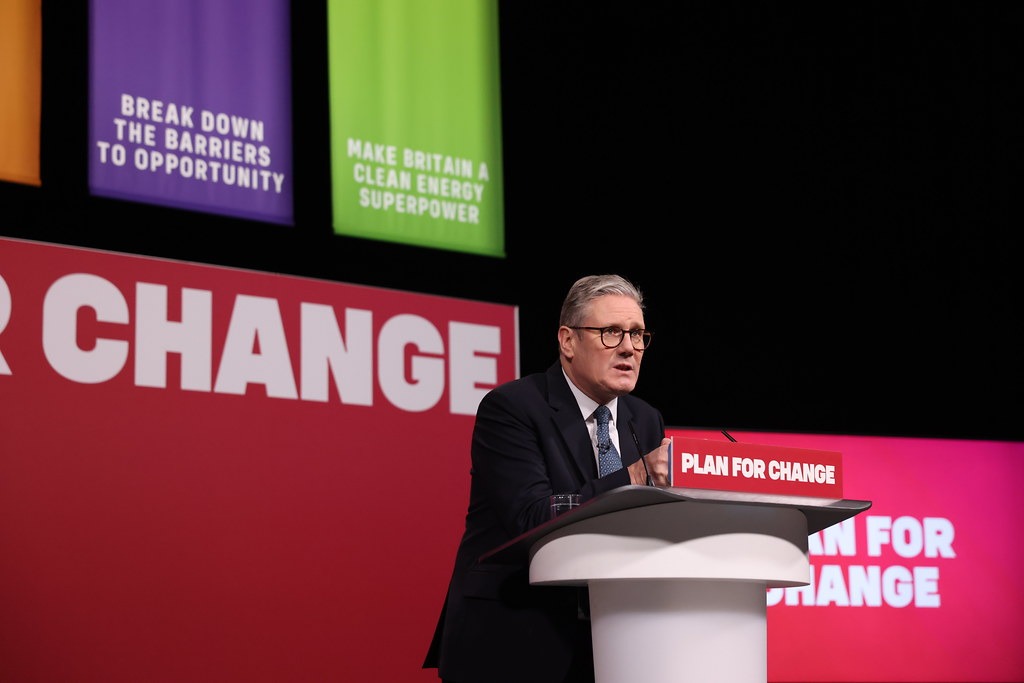The Labour Party and climate policy: Empty promises yet to be delivered
Climate change and climate policy divide not only individuals, but nations. Regardless of one’s stance on the matter, the climate of the planet is undeniably changing for the worse on a daily basis. The Los Angeles fires at the start of 2025 and the Vietnamese Super Typhoon Yagi last year are just two examples that prove the devastation that can be caused by unnatural temperatures rising.
Some nations have a unified stance on this situation. New Zealand and Denmark, for example, seem to agree on net zero goals, but others such as Germany, the UK, and the US have polarised views. For years now, conservationists and climate campaigners have warned of the serious consequences if governments and industrial leaders refuse to take this issue seriously. It was, therefore, a breath of fresh air when the Labour Party took a climate-forward stance in their manifesto ahead of the 2024 general election. After years of Conservative rule in which harmful environmental practices were prioritised – such as oil and gas drilling – the prospect of finally having a government that prioritises effective and thoughtful environmental protection put many voters at ease.
It is no surprise that once again the Government is having a hard time actioning the changes it promised to voters
However, recent reflections on Labour’s climate policies reveal some troubling truths about the party’s real priorities. According to Earth.org, not much has changed since Labour’s promise to slow climate change during the general election campaign. Upon their election win, Starmer made some bold promises to make Britain a “clean energy superpower“. The party’s “Clean Power by 2030” pledge promised to double onshore wind, triple solar power, and quadruple offshore wind across the country. A deadline of five years was set, which, while ambitious, won the votes of many.
Possibly the most attractive element of this pledge was that finally a climate-forward plan seemed to benefit the working classes. In their Green Prosperity Plan, Labour said that decarbonisation would be linked with the creation of jobs. With more insulation, low-carbon heating, lower bills, and local energy production across homes, these proposed plans sought to serve the masses by providing economic security alongside an investment in the future of the planet.
Unfortunately, it is no surprise that once again the Government is having a hard time actioning the changes it promised to voters. Areeba Hamid, Greenpeace UK’s Executive Director, argues that Labour was “elected on a huge climate promise”, and failing to uphold such promises is not only unethical, but could have serious consequences. While we can be thankful that Starmer has expressed no intention to “drill, baby drill”, the current situation is still disappointing.
Unfortunately, Labour’s unhealthy attachment to nuclear and carbon capture […] significantly reduces the significance of these small victories
In October 2024, Greenpeace published a reflection on the first 100 days of the Labour Government and what they have achieved regarding climate policy. There have been some positive changes made since Conservative rule, as the Government appears to promote climate-friendly policies and values. In their first few days in government, Labour ended the ban on building new onshore wind farms, and approved solar farms that the Conservatives were determined to block. State-owned Great British Energy was set up and established a commitment to make Britain a clean energy nation by 2030 (which incidentally, the Tories also promised). Having a net-zero nation was showcased as an important goal in the new government, being one of Labour’s big five missions they aim to achieve within a decade. Unfortunately, Labour’s unhealthy attachment to nuclear and carbon capture, which Greenpeace’s Stefano Gelmini argues is a significant waste of government money, significantly reduces the significance of these small victories.
During the start of their government, Labour also signed the ‘Bridge to Busan’ declaration (which emphasises the importance of cutting plastic production), signed the Water Bill, increased funding for renewables, and supposedly prioritised taxing the super-rich and fossil fuel giants – undoubtedly, we have seen failed attempts at the latter. A significant contradiction within these actions lies in the Government’s failure to ratify the Global Ocean Treaty, which promises to protect at least 30% of the ocean by 2030, and its promise to do so in advance of the UN Ocean Conference this June is looking extremely unlikely. A multitude of other contradictions remain, such as the promise to improve public transport, which has seen minimal progress being made.
Labour is consistently taking one step forwards and two steps back when it comes to securing a green and safe future for all
It’s safe to say that Labour’s manifesto during the general election was seemingly peppered with false promises to gain voters’ attention and secure their success. Though they have made some beneficial changes to previously detrimental Conservative policies, Labour is consistently taking one step forwards and two steps back when it comes to securing a green and safe future for all.
However, Labour’s history of raising awareness of climate change provides a glimmer of hope that soon they may start delivering on their green promises. In 2019, Labour declared a climate and environmental emergency, pushing the then-Conservative Government to make a net zero emissions target, and I believe these words of concern were genuine. After years of Conservative rule which saw the continued dismissal of the reality of climate breakdown, as Boris Johnson’s labelling of climate change as a “primitive fear” that is “without foundation” showed, it’s safe to say we’re in a much better place than we once were. It’s time now for Labour to begin delivering on their bolder promises to secure a greener future.

Comments